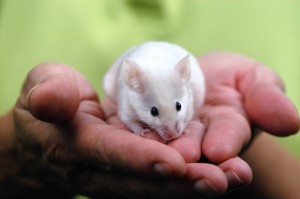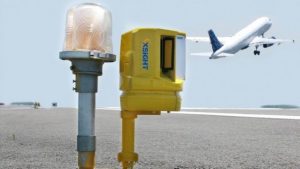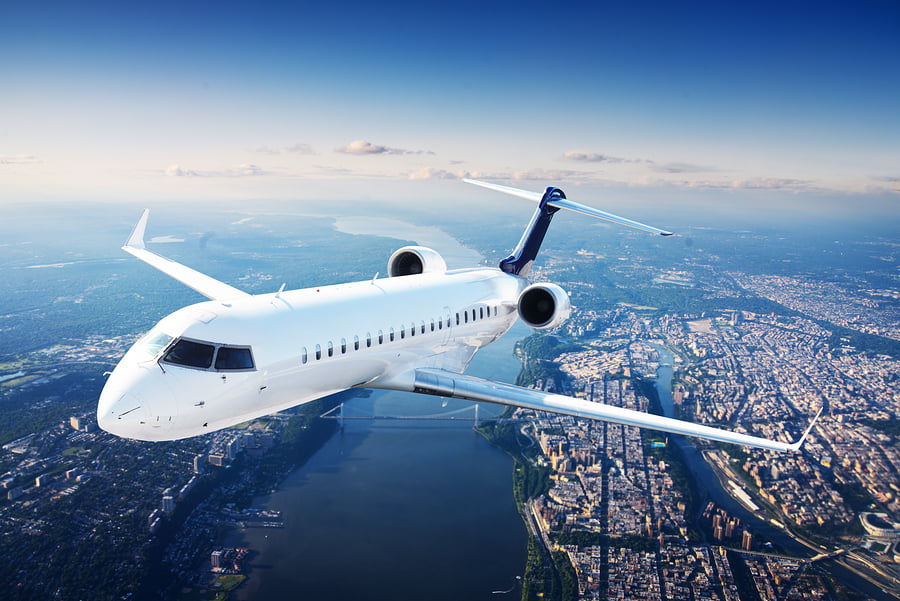Despite air accidents dominating the headlines when they occur, flying by plane is still one of the safest ways to travel. According to The International Air Transport Association (IATA) more than 3.5 billion people flew safely on 37.6 million flights in 2015.
And as far as airports go, Israel’s Ben-Gurion International Airport is considered one of the safest in the world, with layers of security, only partially visible to the 16 million passengers who pass through every year.
Israelis are also at the forefront of a slew of innovations that promise to make traveling a little easier and a lot safer.
Here are five of them:
1. X-Test: Training mice to sniff out explosives
Although some might see mice as pests, Israeli company X-Test is harnessing a trait that make rodents pretty extraordinary. These small mammals can sniff out explosives at airport security checkpoints, thereby protecting travelers while saving security authorities time and money.
Established by former Israel Defense Forces officers, X-Test has built its reputation on detecting and neutralizing explosives. Now, by utilizing mice’s keen sense of smell to detect drugs, explosives and foreign substances at border crossings and airports, the company is breaking new ground. The specially trained mice will be carried in cages to different checkpoints in order to discreetly smell people and their possessions, alerting officials when they smell a potentially lethal substance.

Mouse via Kim Carpenter/Flickr
Yuval Amsterdam, a former bomb-disposal expert who is behind X-Test, even claims the mice are more effective in distinguishing smells than explosive-detecting canines. “They’re as good as dogs as far as their ability to smell, but they’re smaller and easier to train,” Amsterdam told The Independent. “Once they are trained, they become bio-sensors.”
2. Tracense – The five second security check
If the airport you’re flying out of or into doesn’t yet employ bomb sniffing mice, you’ll likely have to go through a time-consuming security check.
Fortunately, a team of Israeli university researchers has created a nanotechnology-based bomb detection chip that could make even the most rigid security inspections dramatically shorter.
The TESS prototype, created by Tel Aviv University researchers and the company Tracense, uses nano-sensors that can sniff out explosive, biological or chemical material, up to a few molecules per 1,000 trillion in the air and at about 16 feet away. The nano-sized sensors can detect which kinds of molecules the chip is “smelling” and analyzes them to see if they belong to known types of dangerous materials.
Tracense’s chip beats can catch TNT, RCX and HMX, which are chemicals usually used commercially and militarily, as well as TATP and HMTD, harder-to-detect explosives often used to in homemade expolosive devices. During the product trials, the team also discovered that the chip could sniff out explosive material in stuffy environments, even those “highly contaminated” by cigarette smoke, in just five seconds.
3. Faception: Facial profiling software to detect criminals
Israeli facial personality profiling startup Faception is the developer of software they believe can spot terrorists, criminals, pedophiles and other deviants.
Sign up for our free weekly newsletter
SubscribeSEE ALSO: BriefCam’s Instant Video Surveillance Helps To Quickly Catch Terrorists, Criminals
Faception claims that just by using its software to scan the photographs of the 11 terrorist responsible for the Paris massacres last November, it could have identified nine of them as terrorists from their facial features alone. Although most of the perpetrators did not have prior criminal records, Faception argues that its software could provide a vital homeland security or police tool in identifying terrorists and criminals.
Founded in 2014 by CEO Shai Gilboa, CTO Dr. Itzik Wilf and chief profiler David Gavriel, the firm has developed a database of 15 classifiers, which the company says are used to determine personality traits with 80 percent accuracy.
Faception demonstrated its technology recently at an amateur poker tournament where it predicted which four competitors would have the upper hand by comparing their pictures with a database of professional players. Ultimately, two of those four ended up among the event’s three finalists, the “Washington Post” reported.
4. Xsight: Keeping airport runways clear
Not to be confused with X-Test, Xsight Systems is an Israeli company providing advanced runway sensor solutions chosen by leading airports worldwide. The technology allows constant command over airport runways and their surroundings.
Earlier this year the company announced their technology will protect planes at Seattle-Tacoma Airport from dangers on the ground and in the sky. After tests and evaluation by the Port of Seattle, the airport’s contractor Leidos will install Xsight’s RunWize – a system that automatically detects runway “junk,” also known as FOD (Foreign Object Debris) and alerts pilots. In addition, the system includes Xsight’s novel BirdWize system, which helps protect planes from birds that get sucked into jet engines (something that is apparently a serious and not uncommon occurrence).
FODetect is fully compliant with FAA/FCC regulations for FOD Detection Equipment, and is in use in airports like Boston Logan, Bangkok Suvarnabhumi International Airport, and Tel-Aviv Ben-Gurion International Airport.

XSight. Courtesy
5. Sensority -Smarter use of security cameras
There are around 200 million security cameras all around the world broadcasting pieces of information at any given moment. A young new Israeli startup wants to use these cameras in a smarter way.
Founded by Valriy Blyus and Dmitry Goldenberg, Sensority offers an interesting technology in the field of video analytics. Their software can connect to the existing cameras’ infrastructure, take the flow of recorded information and process it in real time. It allows monitoring a person’s physiological parameters using a simple camera: pulse, age, breaths per minute and so on, and analyzes the data received.
Their vision is to create a platform on top of which any application based on physiological parameters can be built and used in a range of fields: monitoring data for athletes; using the software for a quick external scanning of a body in order to receive a patient’s vital signs; biometric system for identification via pulse; predicting crime or terror using characteristics such as breathing rate, sweat etc. One could say that it is similar to polygraph machines which use similar parameters.
One fascinating idea was their suggestion to use this analysis done to detect infectious diseases and viruses such as the Ebola virus, which was recently a great concern at airports. Sensority believes that the long way from the airport to boarding the plane or from exiting it could be a goldmine of information and data.
Security checks are not going away, but the right technology will hopefully make getting through them easier for all of us – while also ensuring us a much safer flight.
Photos: Courtesy
Related posts

Editors’ & Readers’ Choice: 10 Favorite NoCamels Articles

Forward Facing: What Does The Future Hold For Israeli High-Tech?

Impact Innovation: Israeli Startups That Could Shape Our Future




Facebook comments